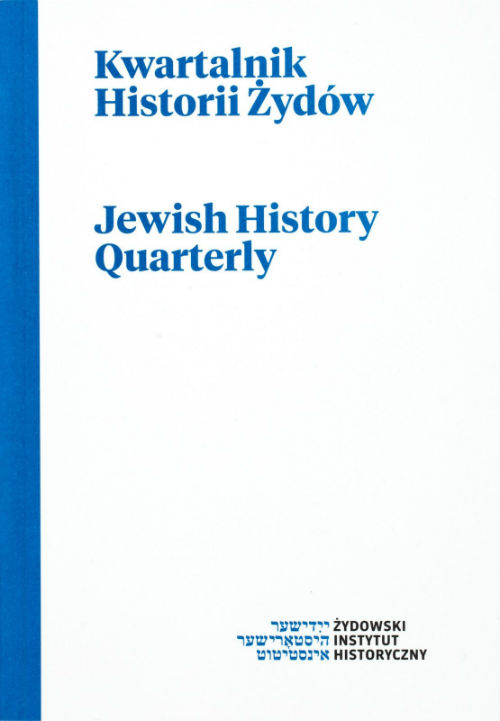„Nusech Pojln” Czy „Jecijes Pojln”? Literackie Dyskusje Nad Żydowską Obecnością W Powojennej Polsce (1945–1949)
„Nusech Pojln” Czy „Jecijes Pojln”? Literackie Dyskusje Nad Żydowską Obecnością W Powojennej Polsce (1945–1949)
Author(s): Magdalena RutaSubject(s): History
Published by: Żydowski Instytut Historyczny
Keywords: anti-Semitism; post-war Poland; survivors; Yiddish literature; nusekh Poyln; yetsiyes Poyln; Communism; post-war trauma
Summary/Abstract: The extermination of more than 90% of the pre-war Jewish population, the destruction of their material culture, the impoverishment of all survivors and the lack of clear prospects for their future, as well as political changes and the prevalent Polish anti- Semitism had a major impact on the lives of Jews in Poland in the first years after World War II. The article discusses numerous examples of the literary works of Yiddish poets such as: Khayim Grade, Binem Heller, Hersh Volf Ivan, Moshe Knaphays, David Sfard, Avrom Sutskever, Yeshaye Shpigel, Avrom Zak, Moshe Zaltsman, and Reyzl Zhykhlinski. The works testify both to the trauma of the majority of the survivors which resulted in their emigration, as well as to the hope of some of them for a good future in their Polish homeland. In conclusion, the author of the article maintains that the idea of nusekh Poyln, which meant the willingness to stay in communist Poland and build a secular Jewish culture within the framework of a very limited political freedom, definitely lost out, in the eyes of Jewish writers, to the concept of yetsiyes Poyln, i.e. the exodus from their homeland. As a result, only a small group of survivors decided to remain in the country during the following years.
Journal: Kwartalnik Historii Żydów
- Issue Year: 246/2013
- Issue No: 02
- Page Range: 272-285
- Page Count: 14
- Language: Polish

